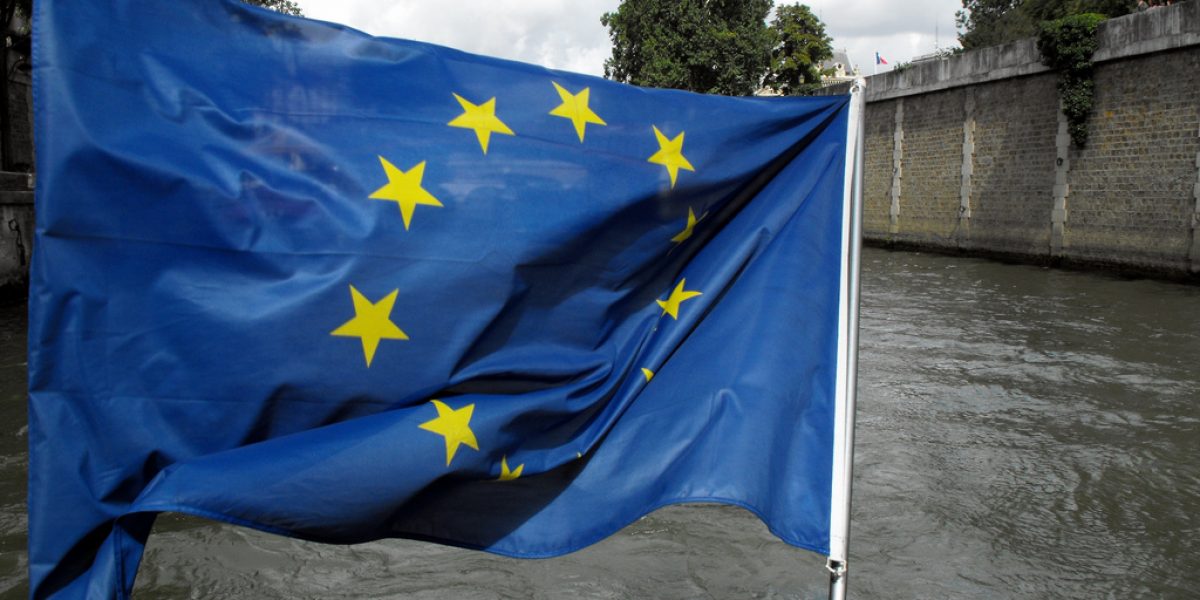EU-Africa
- EU’s Africa Strategy – Communication from the Commission to the Council, 12 October 2005. http://europa.eu.int/comm/development/body/communications/docs/
eu_strategy_for_africa_12_10_2005_en.pdf - EU’s Africa Strategy – The EU Council at a meeting on 15 and 16 December 2005 adopted the following text towards a strategic partnership with Africa. http://europa.eu.int/comm/development/body/tmp_docs/the_eu_and_africa
_towards_a_strategic_partnership_european_council_15_16_12_2005.pdf
EU and North Africa
- Euro-Mediterranean Partnership (EMP) Agreement/Barcelona Process
(http://europa.eu.int/comm/external_relations/euromed/bd.htm) laid the foundation for a new regional relationship representing a turning point in Euro-Mediterranean relations. In addition to the 25 EU member states, the EMP includes Algeria, Egypt, Morocco, Tunisia, Syria, Israel, Jordan, Turkey and the Palestinian Authority (Libya has had observer status since 1999). - Algeria’s Strategy Paper 2002-2006 (in French) http://europa.eu.int/comm/external_relations/algeria/csp/index.htm
- Egypt’s Euro-Mediterranean Agreement http://europa.eu.int/comm/external_relations/egypt/aa/06_aaa_en.pdf
- Tunisia’s Euro-Mediterranean Agreement
http://europa.eu.int/eur-lex/pri/en/oj/dat/1998/l_097/l_09719980330en00020174.pdf - Morocco’s Euro-Mediterranean Agreement
http://europa.eu.int/eur-lex/pri/en/oj/dat/2000/l_070/l_07020000318en00020190.pdf
European Neighbourhood Policy (ENP)
- The ENP offers the EU’s eastern and southern neighbouring countries a closer relationship with the EU, involving a significant degree of economic integration and a deepening of political cooperation. It will be a key vehicle for promoting European values, and sharing the fruits of the EU’s enlargement to the benefit of its citizens and neighbours.All five North African countries are beneficiaries under this policy, implementation of which started in 2005 with the adoption of a first set of ENP Action Plans, including those for Tunisia and Morocco – http://europa.eu.int/comm/world/enp/index_en.htm
EU and sub-Saharan Africa
Cotonou Agreement – The Lomé Convention preceded this agreement, which is a partnership agreement between ACP countries and the EU. This agreement was revised in 2005 to include a political dimension. In Africa, Cotonou includes sub-Saharan Africa and South Africa, but does not include any North Africa states. http://europa.eu.int/comm/development/body/cotonou/pdf/agr01_en.pdf#zoom=100. Also see the Development Through Trade project.
EU and South Africa
TDCA – Agreement on Trade, Development and Co-operation between the EU and South Africa ratified in 2004. http://www.tralac.org/pdf/TDCA.pdf. Also see the Development Through Trade project. The key element of the agreement is the creation of a Free Trade Area (FTA) between the EU and South Africa.
G8 and Africa
Commission for Africa – Initiated by Tony Blair and its report, published on 11 March 2005, was used as a basis for the Gleneagles G8 talks that year.
http://www.commissionforafrica.org/english/report/thereport/english/11-03-05_cr_report.pdf.
Foreign Ministry websites of EU’s 25 member states:
- United Kingdom – www.fco.gov.uk
- Ireland – http://foreignaffairs.gov.ie
- Germany – http://www.auswaertiges-amt.de/www/en/index_html
- France – http://www.diplomatie.gouv.fr/en/
- The Netherlands – www.minbuza.nl
- Belgium – http://www.diplomatie.be/en/default.asp
- Luxembourg – www.mae.lu
- Italy – www.esteri.it
- Spain – http://www.mae.es/en/Home/
- Portugal – www.min nestrangeiros.pt
- Finland – http://formin.finland.fi/english/
- Denmark – http://www.um.dk/da
- Sweden – http://www.sweden.gov.se/sb/d/2059
- Austria – www.bmaa.gv.at
- Greece – http://www.mfa.gr/english/index.html
- Cyprus – www.mfa.gov.cy
- Malta – http://www.foreign.gov.mt/
- Slovenia – http://www.sigov.si/
- Slovakia – http://www.foreign.gov.sk/En/index.html
- Latvia – http://www.mfa.gov.lv/en/
- Lithuania – http://www.lrvk.lt/main_en.php
- Hungary – http://www.mfa.gov.hu/kum/en/bal/
- Estonia – http://www.vm.ee/eng
- Czech Republic – http://www.mzv.cz/wwwo/mzv/default.asp?idj=2&amb=1
- Poland – www.msz.gov.pl
EU-South Africa links:
- EU-SA partnership. www.eusa.org.za
Websites of European think-tanks doing research on EU related issues
European think-tanks doing work on EU-related issues:
- The Royal Institute of International Affairs (RIIA)/Chatham House, London. http://www.riia.org/
- European Centre for Development Policy Management (ECDPM) in Brussels and Maastricht. http://www.ecdpm.org/
- Royal African Society. http://www.royalafricansociety.org/
- Institut Royal des Relations Internationales, Koninklijk Institut voor Internationale Betrekkingen (IRRI-KIIB). www.irri-kiib.be/new.htm
- Netherlands Institute of International Relations, Clingendael. http://www.clingendael.nl/
- Clingendael European Studies Program (CESP). http://www.clingendael.nl/cesp/research/
- United Nations University, Comparative Regional Integration Studies (CRIS) http://www.cris.unu.edu/
- Institute for Public Policy Research (IPPR), London. http://www.ippr.org
- Centre for European Policy Studies (CEPS), Brussels. http://www.ceps.be/Default.php
-
Centre of European Integration Studies. http://www.zei.de/
- The Netherlands Institute for Southern Africa (NIZA). http://www.niza.nl/index_en.phtml
- Centre d’Etude d’Afrique Noire (CEAN). http://www.cean.u-bordeaux.fr/anglais/index.html..
- French Institute of International Research ( IFRI) – http://www.ifri.org/
- French Institute of South Africa (IFAS). http://www.ifas.org.za/index.htm
- Elcano.Real Instituto Elcano de Estudios Internacionales y Estrategicos. http://216.239.39.104/translate_c?hl=en&u=http://www.realinstitutoelcano.org/default_eng.asp&prev=/sessarch%3Fq%3DElCano%26hl%3Den%26lr%3D
- EU Security and Defence Policy–Institute of Security Studies (ISS), http://www.iss.europa.eu

